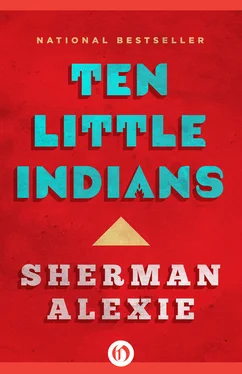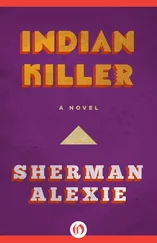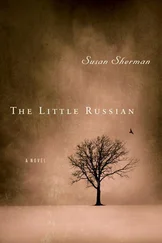“I’ve got to go,” Corliss said. “I’ve got homework.”
“Give me that book,” the second uncle said. He took the book from her, opened it at random, and read, “‘Glory be to God for dappled things— / For skies of couple-colour as a brinded cow.’”
All of the men laughed.
“What the hell does that mean?” the third uncle asked.
“It’s a poem about a cow,” her father said. “She’s always reading poems about cows.”
“You can’t write a poem about a cow, can you?” the first uncle asked. “They’re ugly and stupid. I thought poems were supposed to be pretty and smart.”
“Yeah, Corliss,” the second uncle said. “You’re pretty and smart, why are you wasting your time with poems? You should be studying science and math and law and politics. You’re going to be rich and famous. You’re going to be the toughest Indian woman around.”
How could these men hate poetry so much and respect her intelligence? Sure, they were men raised in a matriarchal culture, but they lived in a patriarchal country. Therefore, they were kind and decent and sensitive and stupid and sexist and unpredictable. These husbands were happily married to wives who earned more money than they did. These men bragged about their spouses’ accomplishments: Ha, my woman just got a raise! My honey makes more money than your honey! My wife manages the whole dang Kmart, and then she comes home and manages us! She’s a twenty-first-century woman! Nah, I ain’t threatened by her! I’m challenged! Who were these Indian men? What kind of warriors were they? Were Crazy Horse and Geronimo supportive of their wives? Did Sitting Bull sit with his wife for weekly chats about the state of their relationship? Did Red Cloud proudly send his daughter out to fight the enemy? Corliss looked at her father and saw a stranger, a loving stranger, but a stranger nonetheless.
“And I’ll tell you what,” her father said. “After Corliss graduates from college and gets her law degree, she’s going to move back to the reservation and fix what’s wrong. We men have had our chances, I’ll tell you what. We’ll send all the tribal councilmen to the golf courses and let the smart women run the show. I’ll tell you what. My daughter is going to save our tribe.”
Yes, her family loved and supported her, so how could she resent them for being clueless about her real dreams and ambitions? Her mother and father and all of her uncles and aunts sent her money to help her through college. How many times had she opened an envelope and discovered a miraculous twenty-dollar bill? The family and the tribe were helping her, so maybe she was a selfish bitch for questioning the usefulness of tribalism. Here she was sitting in a corner of her tiny apartment, pretending to be alone in the world, the one poetic Spokane, and she was reading a book of poems, of sonnets, by another Spokane. How could she ever be alone if Harlan Atwater was somewhere out there in the world? Okay, his poems weren’t great. Some of them were amateurish and trite, and others were comedic throwaways, but there were a few poems and a few lines that contained small bits of power and magic:
The Little Spokane
My river is not the same size as your river.
My river is smaller and colder.
My river begins in the north
And rushes to find me.
My river calls to me.
I swim it because it is water.
Water doesn’t care about anybody
But this water cares about me.
Or maybe it doesn’t care about me.
Maybe the river thinks I’m driftwood
Or a rubber tire or a bird or a dead dog.
Maybe the river is not a river.
Maybe the river is my father.
Maybe he’s smaller and colder than your father.
Corliss had swum the Little Spokane River. She’d floated down the river in a makeshift raft. She’d drifted beneath bridges and the limbs of trees. She’d been in the physical and emotional places described in the poem. She’d been in the same places where Harlan Atwater had been, and that made her sad and happy. She felt connected to him and wanted to know more about him. She picked up the telephone and called her mother.
“Hey, Mom.”
“Corliss, hey, sweetie, it’s so good to hear your voice. I miss you.”
Her mother was a loan officer for Farmers’ Bank. Twenty years earlier, she’d started as a bank teller and had swum her way up the corporate fish ladder.
“I miss you, too, Mom. How is everybody?”
“We’re still Indian. How’s school going?”
“Good.”
All of their conversations began the same way. The mother-daughter telephone ceremony. Corliss knew her mother would soon become emotional and tell her how proud the family was of her accomplishments.
“I don’t know if we tell you this enough,” her mother said. “But we’re so proud of you.”
“You tell me every time we talk.”
“Oh, well, you know, I’m a mother. I’m supposed to talk that way. It’s just, well, you’re the first person from our family to ever go to college.”
“I know, Mom, you don’t need to tell me my résumé.”
“You don’t need to get smart.”
Corliss couldn’t help herself. She loved her mother, but her mother was a bipolar storyteller who told lies during her manic phases and heavily exaggerated during her depressed times. Those lies and exaggerations were often flattering to Corliss, so it was hard to completely resent them. According to the stories, Corliss had already been accepted to Harvard Medical School but had declined because she didn’t feel Harvard would respect her indigenous healing methods. You couldn’t hate a mother full of such tender and flattering garbage, but you could certainly view her with a large measure of contempt.
“I’m sorry, Mom. Listen, I picked up this book of poems—”
“Corliss, you know how your father feels about those poems.”
“They’re poems, Mom, not crack.”
“I know you love them, honey, but how are you going to get a job with poems? You go to a job interview, and they ask you what you did in college, and you say ‘poems,’ then what are your chances?”
“Maybe I’ll work in a poem factory.”
“Don’t get smart.”
“I can’t help it. I am smart.”
Corliss knew she was smart because her mother was smart, but she also knew she’d inherited a little bit of her mother’s crazies as well. Why else would she be calling to talk about a vanished Indian poet? The crazy mother — crazy daughter telephone ceremony!
“So did you call to break my heart,” her mother said, “or do you have some other reason?”
“I called about this book of poems.”
“Okay, so tell me about your book of poems.”
“It’s written by this guy called Harlan Atwater. It says he’s a Spokane. Do you know him?”
Her mother was the unofficial historian of the urban Spokane Indians. Corliss figured “historian” and “pathological liar” meant the same thing in all cultures and countries.
“Harlan Atwater? Harlan Atwater?” her mother repeated the name and tried to place it. “Nope. Don’t know him. Don’t know any Spokanes named Atwater.”
“His book was published in 1972. It’s called In the Reservation of My Mind. Do you remember that?”
“I don’t read books much.”
“Yes, I know, Mom. But you’re aware there are inventions called books and inside some of those books they have things called poems.”
“I know what books are, smart-ass daughter.”
“Okay, then, have you heard of this book?”
“No.”
“Are you sure?”
“Yes, I’m sure.”
“I thought you knew every Spokane.”
Читать дальше












